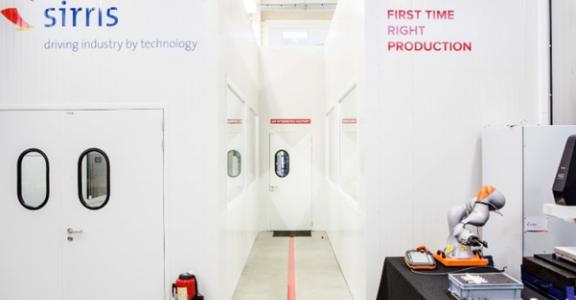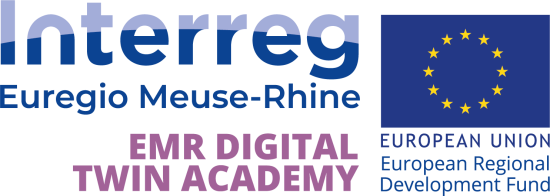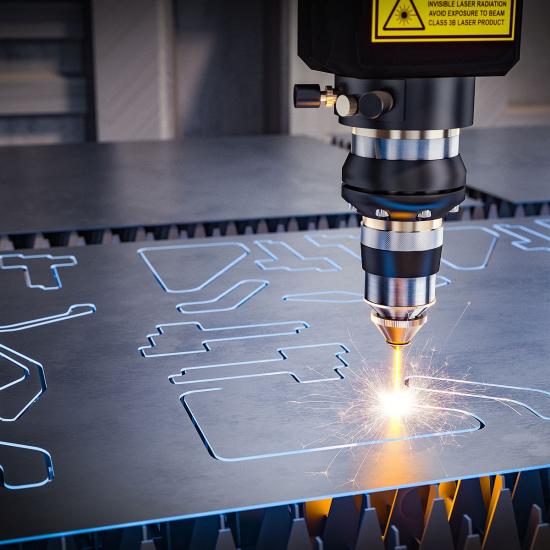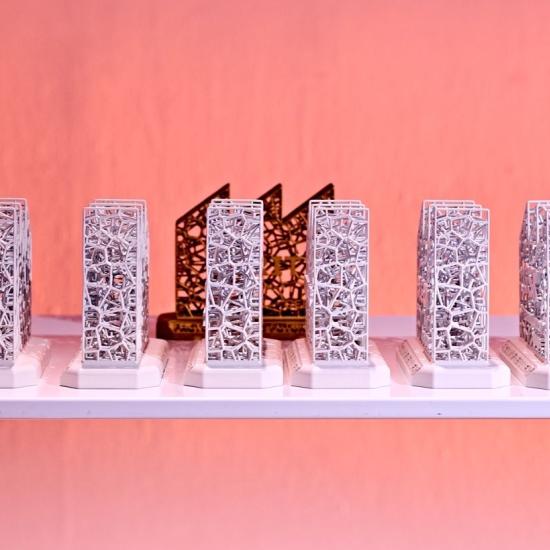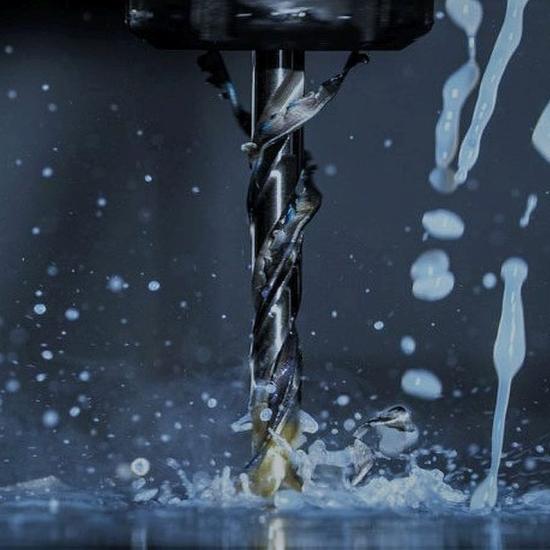Not having been allowed to receive visitors in recent years does not mean that technological developments have not come to a standstill too. It is indeed high time to throw our doors open once more and give a demonstration of the latest in 'advanced manufacturing'!
On Tuesday 13 September, we will welcome you at our workshop in Diepenbeek to demonstrate technological developments in the area of advanced manufacturing. An overview of what we have in store for you:
Polishing, sanding and deburring robots
Plastic and metal parts often need finishing (deburring, sanding...) in order to achieve the required final quality. This is mainly a manual job and often considered to be monotonous, heavy, dirty, time-consuming and costly.
Commercial automation solutions are available for finishing large series of identical products. However, automated finishing of small series of different products is not so obvious. Instead of trying to eliminate operators through automation, a user-friendly assistant (cobot) can support experienced operators by taking over repetitive, dirty, stressful tasks. The cobot thus increases the operator’s finishing capacity.
Introducing cobots for parts finishing is part of the COOCK project COBOFIN.
Self-propelled platforms
Recent technological developments in 'autonomous mobile robots' (AMRs) and 'automated guided vehicles' (AGVs) offer opportunities for flexible automation of internal logistics operations at an affordable/acceptable cost. At Sirris, we show both the technological and economic feasibility of AMRs on the shop floor of SMEs for the flexible production of smaller series.
This activity is part of the European Trinity project.
Intelligent solutions for machining tools
The iTENDO includes integrated vibration sensors for real-time measurement of the milling process and immediate detection of unexpected peaks or problems. Due to the wireless communication, it can be used in a production environment. The system marketed by Schunk contains not only the holder and the communication module, but also software to visualise and analyse the measurements. Schunk and Sirris have joined forces to further explore the potential application of the iTENDO.
Model-based processing as a stepping stone to digitalised machining
The machining industry often refers to adaptive machining, i.e. taking specific actions based on the current production situation. Successful implementation depends on the availability of correct (real-time) data and the corresponding structured and digitalised working methods. The first aspect is increasingly within reach thanks to the growing range of hardware and software. For the second aspect, we must move towards 'model-based machining', where parameterised models (formulas) are used to identify the optimal machining process. We offer these models online via the website.
The models and the online platform are being developed as part of the COOCK project Model-based processing.
Connected production environment
The use of real-time production data is key for 'Industry 4.0'. The first challenge indeed lies in collecting this data: how to connect to your machinery? How to visualise different data sources? Companies aiming for digitalisation are looking for a user-friendly ways to make this happen. The company Reniver wants to provide a possible answer: they continued to develop their solution within the '4.0 made real' environment and are now ready to officially launch the platform.
Intelligent processing tools
In machining, the degree of tool wear is a major indicative parameter for process control. To date, no solutions are available to measure the degree of wear, other than a visual check. For a long time, people have tried to make predictions based on a single indicator (e.g. force measurement, power measurement or acoustic measurement). However, in practice, this did not prove accurate enough.
A breakthrough has now been achieved with a multisensor solution, where physical parameters are measured in real time, while a visual inspection is also performed simultaneously using a camera and image processing. The machining tool is now able to autonomously assess tool wear.
Functionally textured surfaces for new generation components
At our Precision Manufacturing Lab in Diepenbeek, a full state-of-the-art infrastructure is available to develop and manufacture products with unique functionalities: the possibilities include ultra-precise, high-gloss, reflective surface pre-treatment by means of precision milling, after which a unique surface functionality can now be added via femtosecond laser texturing.
Within the COOCK project Surfacescript we demonstrate how a functionality validated on a 2D sample can be transferred to a concrete industrial product.
The above and more will be on display at our 'Open House' on 13/09/2022. Obviously, our Sirris experts will be more than happy to exchange ideas about your specific application.
Participation is free of charge, but registration is required, via our agenda!
Partners
Financed by:
